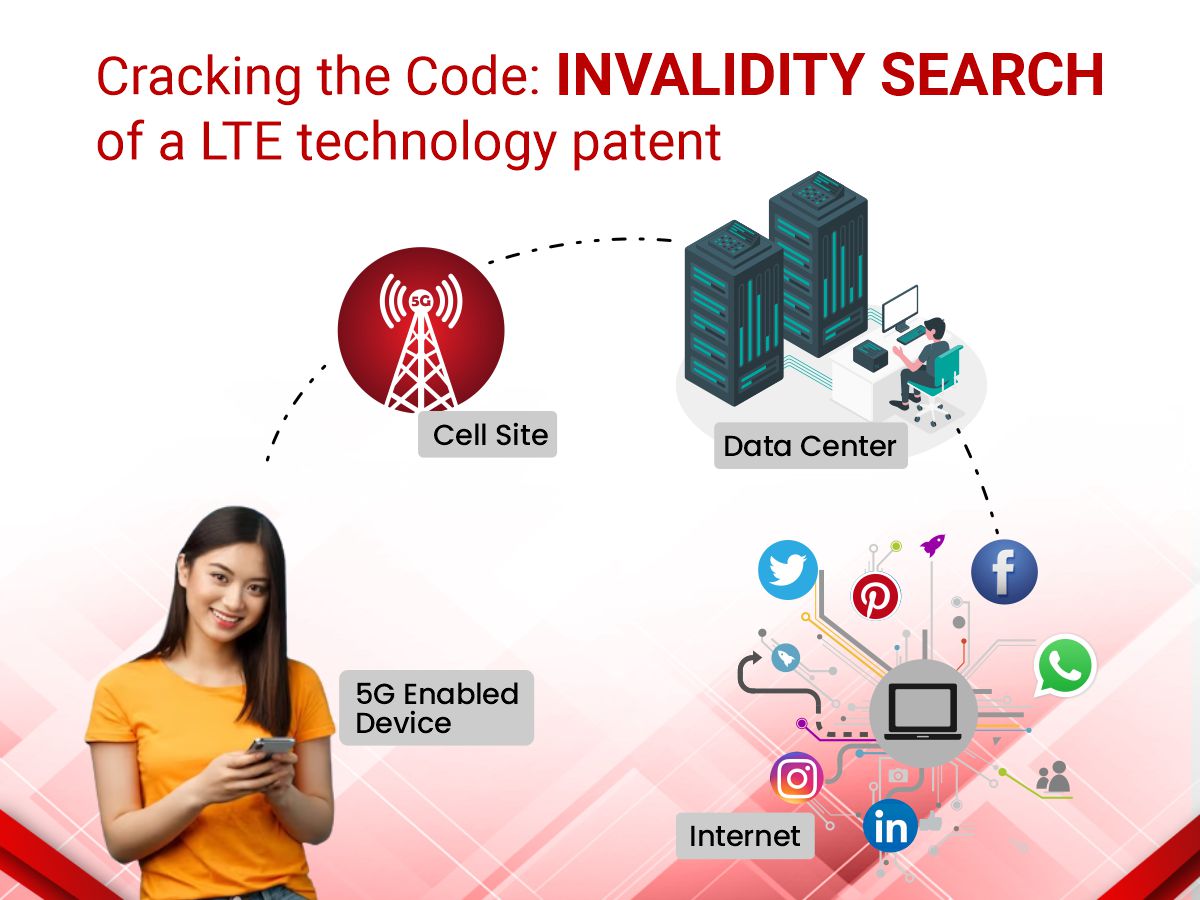Subscribe our newsletter
Please Subscribe our news letter and get update.

Recently we did an invalidation search on 5G technology. The patent we received for Invalidation search was related to data handling in a communication network. After an in-depth analysis of the patent, we found a mobile unit performing channel estimation based on the reference signals received from the base station. Further, pilot frequency resource information is generated and sent to each mobile unit in MIMO mode.
We further analyzed the file wrapper to identify the grounds for a patent grant. After file wrapper analysis, the novel point of the patent was identified, i.e., “sending the pilot frequency resource information to each UE in the MU-MIMO mode.”
After a thorough analysis of the patent, we extracted relevant keywords, along with their synonyms. We initially executed a keyword-based search on paid and free patent databases (Orbit, Free patents Online, Google patents, Espacenet, etc. This resulted in the identification of new keywords and new relevant classes.
Further, different search strategies were used, such as keyword-based, class-based, and combining keyword & class-based searches. Assignees and inventor-based searches were performed with relevant classes or relevant keywords.
The search was restricted to handling data in an LTE communication network and allocating channels. We mostly found references that disclosed the handling of sending and receiving data using pilot frequency resource information.
Further, the search was restricted to base stations providing pilot frequency resource information to each user equipment in multiple user multiple input multiple outputs (MU-MIMO) modes.
User equipment that received pilot/reference frequency resource information from multiple base stations.
Along with the patent search, a non-patent search was performed on Google, Google Scholar, Science Direct, SpringerLink, and DeepDyve. Apart from this, we searched IEEE, 3GPP, and ITU with different search strategies as there are high chances of finding prior art in 3GPP meeting archives and proposals.
Inventors/authors from different companies participate in 3GPP and IEEE conferences and provide their insights towards solving the defined problem for providing future-ready technology.
Claim charts were prepared for identified relevant prior arts with the proper searcher comments and summaries for each prior art. The mapped relevant patent references explicitly disclosed all the required features of the claimed invention. Relevant text mapping was provided for NPL reference as NPLs only disclosed “providing the pilot frequency to each user equipment but fails to disclose the MIMO mode.”
We also provided relevant text mapping for identified additional patent references along with claim charts. Additional references disclosed the subject claim features in parts such that, when combined, makes subject patent claim features obvious for the person with ordinary skill in the art. We also performed a citation and similarity search of relevant references to ensure we got all the relevant prior art.
Please Subscribe our news letter and get update.
© Copyright 2024 – Wissen Research All Rights Reserved.